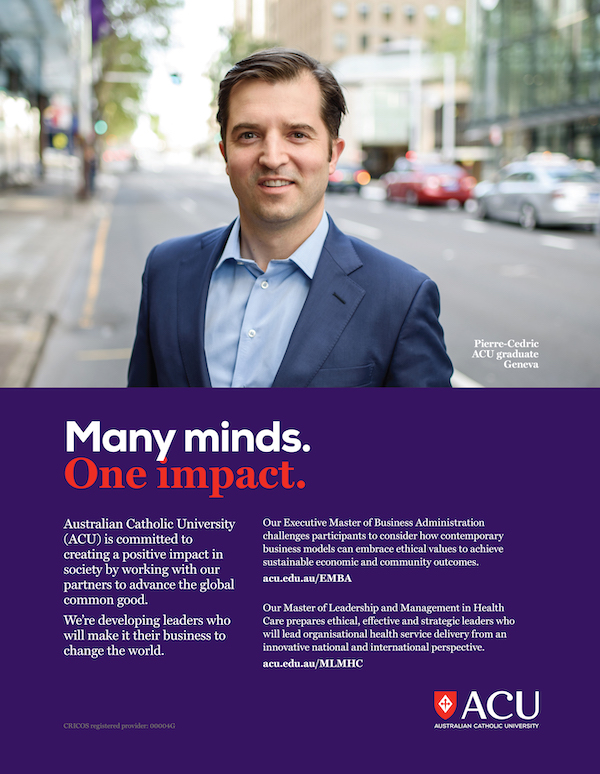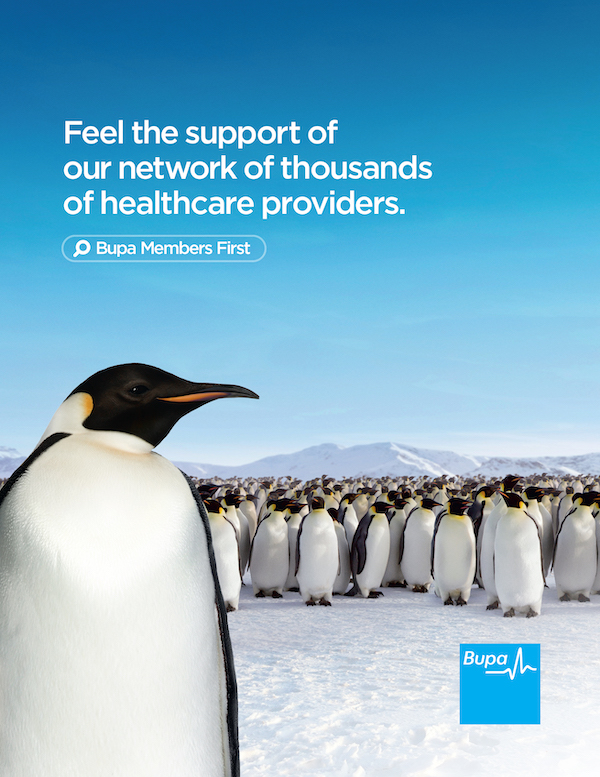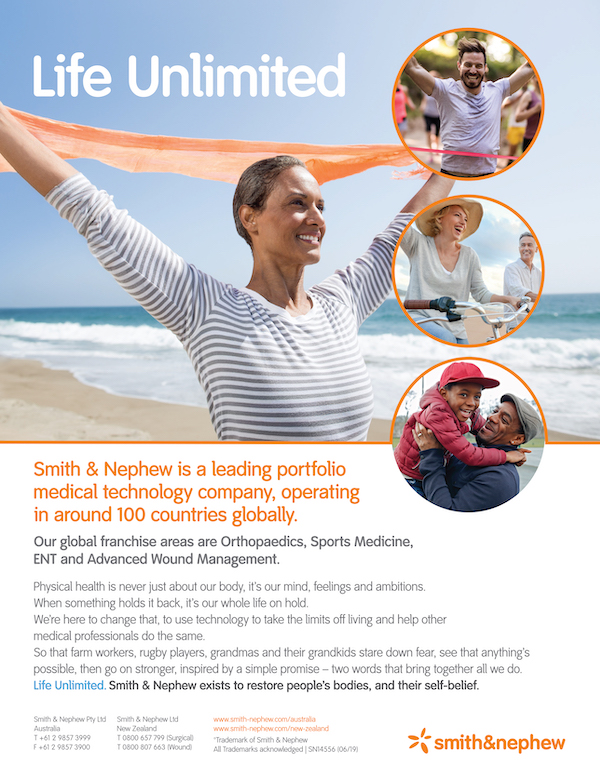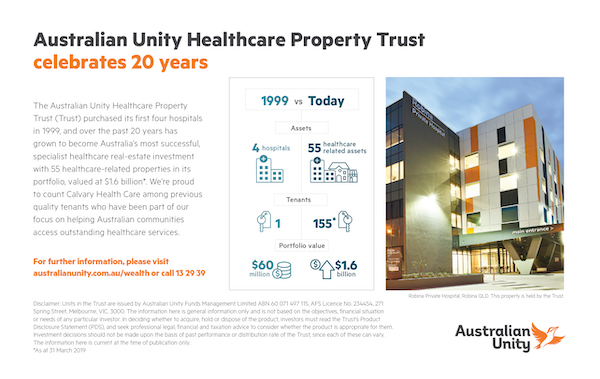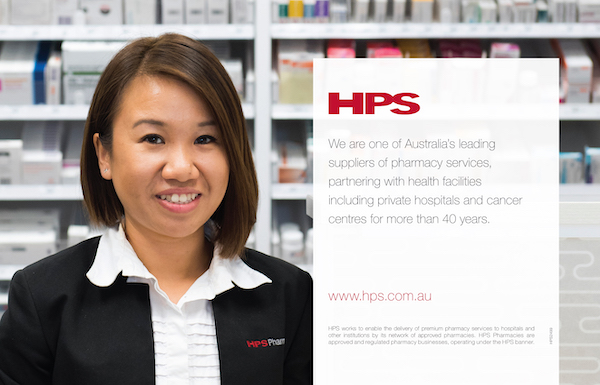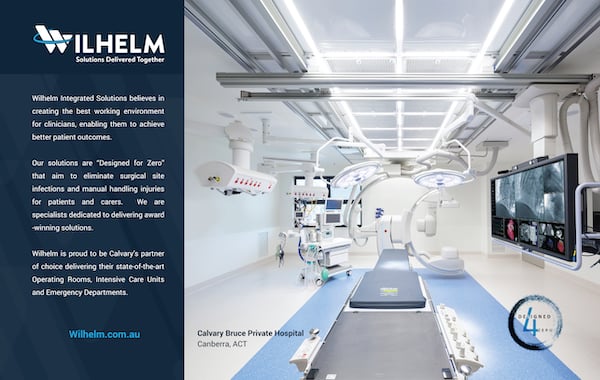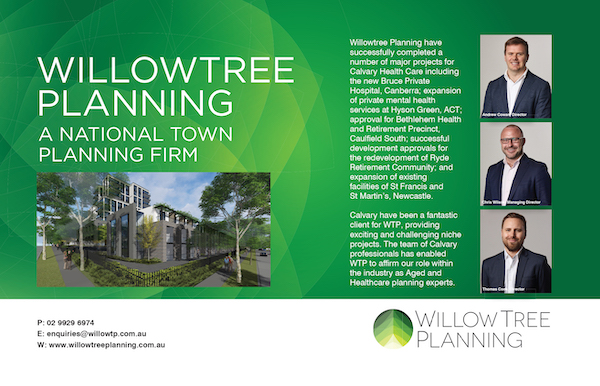The takeaway lesson from the career of Martin Bowles, National CEO of Catholic healthcare provider Calvary, is that it’s never too late to make a change. Until 2017, he served in the public sector for almost 40 years, working across New South Wales, Queensland and the Commonwealth.
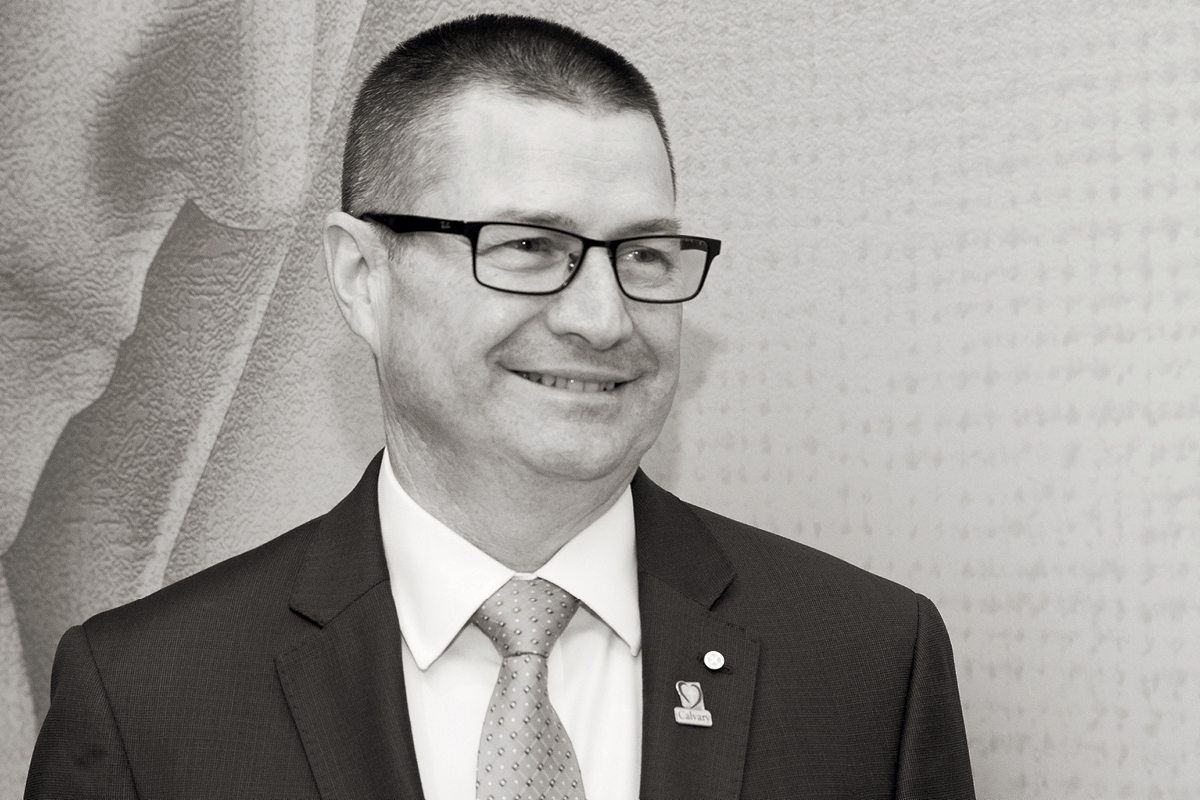
Eventually, he reached the peak of public service during his time as Secretary of two federal departments. But after that, he made the move to the private sector, when he took on a leadership role with Calvary.
The 134-year-old not-for-profit organisation follows a mission of offering “health care that really cares” across more than half of Australia. To achieve this, Calvary leverages its people and partners, though the most crucial element of success is the team Martin constructs around himself.
The CEO Magazine: A notable element of your career is that you’ve spent most of it in the public service. What inspired you to make the switch to the private sector?
Martin: I spent a lot of time in different parts of the public service. I was Secretary of Immigration and then Secretary of Health. To be Secretary of a Department is the pinnacle of the public service, but you get to a point where you want to try something different, and I got to that point in 2017. So I decided I needed to try something different and see what that looked like.
Even in the public sector, back in the old days, I was running hospitals, so health care was close to my heart. Calvary, being a very mission- and values-based organisation, fitted with my worldview, so that’s how I ended up here.
Was it Calvary’s focus on mission and values that drew you to it? What made it different to the public service?
I don’t know whether it was different necessarily. But what you learn about yourself over a long period of time is how you react in certain circumstances, and what drives you. What drives me is getting better outcomes, whoever you’re dealing with.
“What drives me is getting better outcomes, whoever you’re dealing with.”
As Secretary of Health, it was better outcomes for the Australian community as far as health care goes. In Calvary, it’s better health outcomes for the patients, residents and clients we care for. It’s being values-driven.
I like to say, I am my life’s experience. I’ve done a lot of different things, and I’ve learned a lot along the way – the good, the bad and the ugly. That’s what makes you the person you are. I saw Calvary, from a values perspective, as an organisation that fitted where I am and who I am.
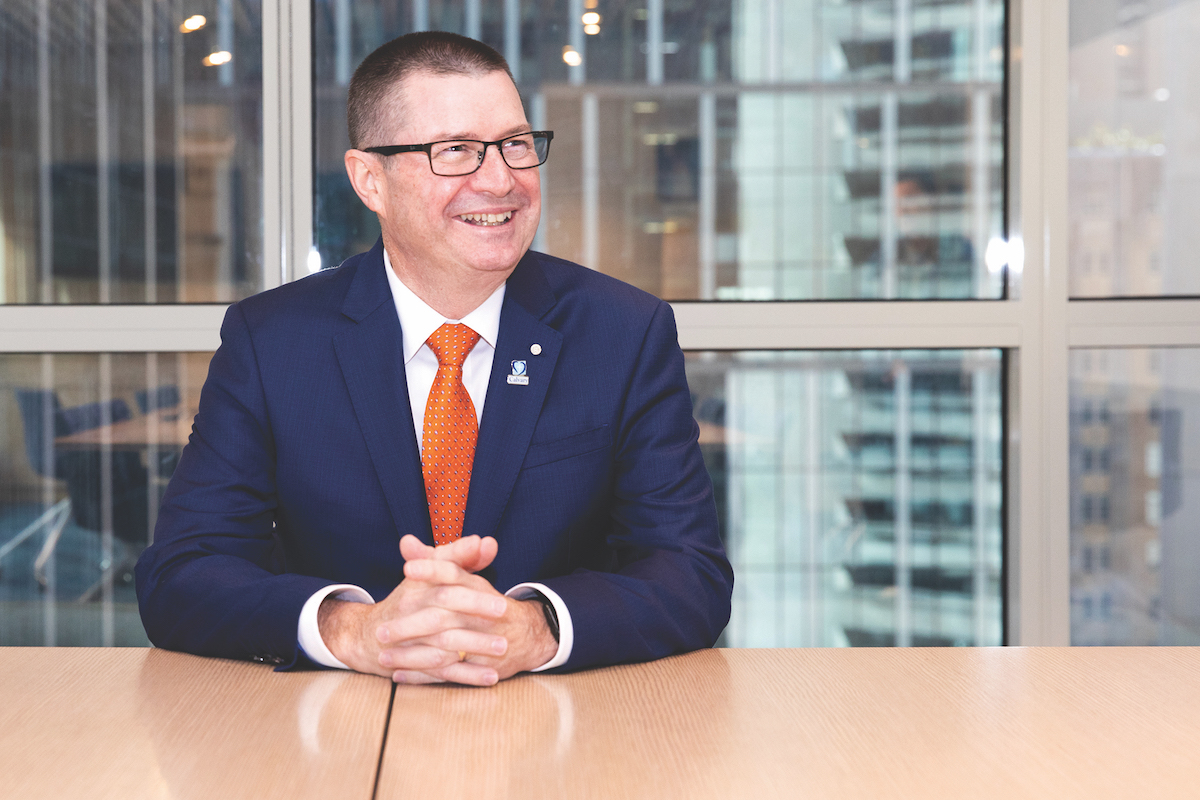
On the other hand, what sort of adjustments did you have to make? Were there any challenges in switching sectors like that?
Not particularly. Yes, they’re different sectors but, at the end of the day, you acquire a whole range of skills. You’ve always got to learn new things. I think that one of my strengths is the ability to adapt, and to assemble a strong team around me that picks up on my weaknesses.
It’s the strength of the group that allows you to get on with the job. There are always new lessons, but that shouldn’t be seen as a gap. You just have to understand how you operate in certain circumstances, and you can deal with all those issues. I have enjoyed the change. I’ve been here about 18 months now and I’m loving it.
That’s obviously a relatively short time in the lifespan of an organisation, but what are some of the changes that you’ve either seen or implemented yourself in that time?
Health is changing; the market has changed more broadly. Interestingly, several of the things that I was responsible for as Secretary of Health, around appropriateness of care and reviewing practices under the medical benefit schedule, play out in health care delivery.
I’m seeing a real improvement in the appropriateness of care, and it does have an impact on the market. The public discourse around private health insurance is clearly having an effect on the private health market. But we have to look at new and innovative ways of ensuring that our patients, residents and clients are at the centre of our thinking in delivering the services we provide.
I’ve taken a very holistic approach and looked at what the system, as opposed to its individual parts, is doing. We’ve also increased our focus on regionally driven strategies, as every state and territory we operate in has unique local challenges and opportunities.
What are some of the specific measures you’ve undertaken to adjust to these changes in the broader health system?
Traditionally, we’ve had everything very local. We now look at national, regional and local, to understand what can and can’t happen at each of those levels. We’ve also introduced a strategic policy framework and developed what I call a ‘strategic intent’, which outlines our strategic priorities and values and how we behave to meet those values. There’s been a deliberate focus on leadership capability, corporate contribution, culture and everything that goes with that.
You’re working on a strategy of ‘strengthening the core’ of Calvary. Is the emphasis on culture and leadership part of this strengthening?
That’s right. If you look at yourself strategically as an organisation, it’s no good building a house with no foundation. You’ve got to make sure your core is strong, so we’re doing a lot of work around that.
“You’ve got to make sure your core is strong, so we’re doing a lot of work around that.”
But we’re also looking at how we grow that core. How do we grow organisationally when a market is changing and when margins are reducing? You’ve got to look at how you both stabilise and grow at the same time.
We have to be strategic to do that. You have to look from a great height. But when you’re running public hospitals, private hospitals, residential aged care, community care, drug and alcohol services, mental health services and rehabilitation services, you’ve got to understand the interdependencies within that system and how to limit the impact on those interdependencies as you make change.
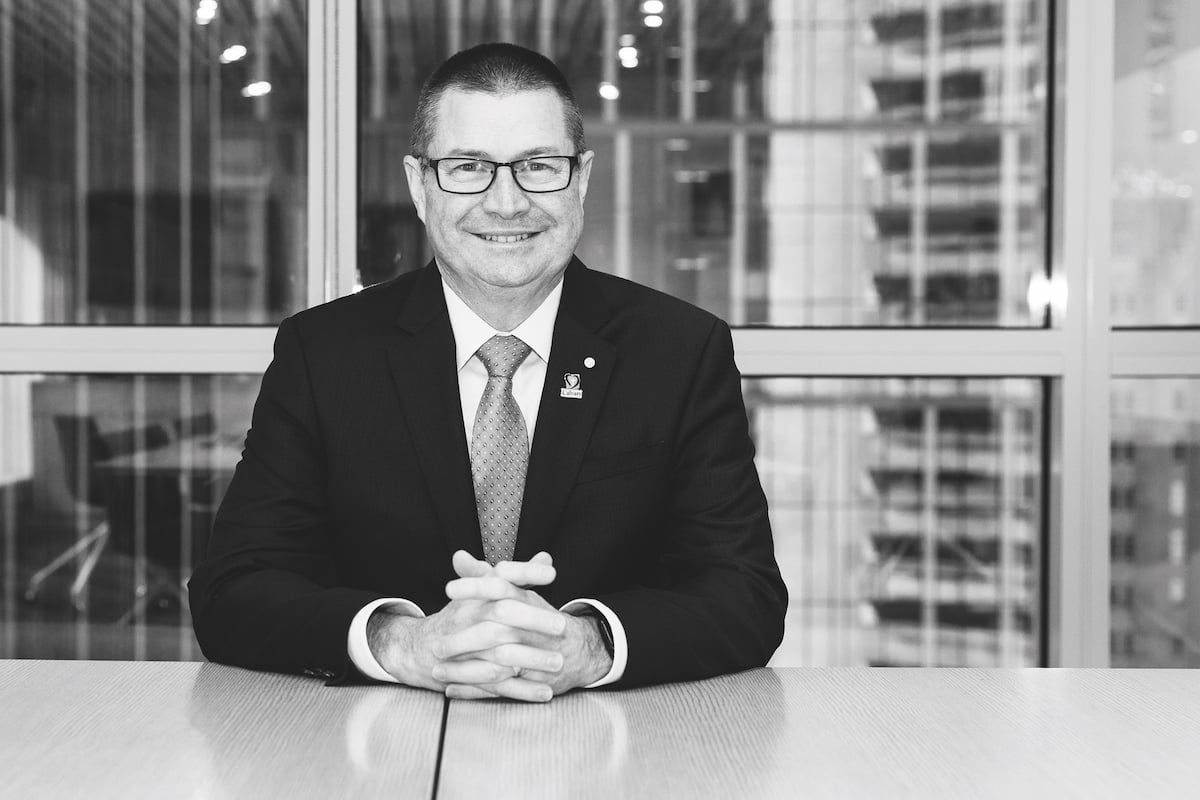
What’s the focus of ‘growing the core’? Geographical expansion?
It can be. It can involve looking at the services that make sense, that meet our capabilities and capacities, and examining how we can grow those services. That could be within specialty areas, within a hospital or within a region. It could be a new initiative – do we want to invest in other parts of the health industry?
We’re across most of it, but do we want to put more emphasis on primary care into the future? Again, it’s taking that strategic look about where the health care system is going and managing the risk around where you put your emphasis.
Have you determined what specific services you want to focus on, or is that still something you’re piecing together?
It’s a mix of everything. We’re actively looking at issues such as mental health and rehabilitation services. We’re building a brand-new hospital in Adelaide at the moment and we’ll look at how we develop clinical services that we think the community needs, and that make sense for us from a business perspective.
To return more to your own role and responsibilities, could you talk a little about what your day-to-day duties look like?
It’s probably never the same. I go from internal to external. There are, of course, a lot of governance responsibilities. Today, I’ve had an external session with someone interested in the future of health care and I’ve done a presentation to the Royal Australasian College of Physicians.
Then there’ll be specific meetings around different parts of our business that we’re trying to improve or look at. Tomorrow, I’m going to look at some aged care issues and community care work that we’ve got underway. So, I do quite a diverse set of things on a daily basis. Every day is a little bit different, but it never really slows you down. It keeps me off the streets; let’s put it that way.
Is there any particular element to it that you enjoy the most or inspires you the most?
For me, it’s the people. It’s watching people and teams coalesce around ideas and thrive in that environment. When they feel they’ve got permission to be innovative and creative, and come up with different ways of looking at the same old issues, that’s always exciting.
“For me, it’s the people. It’s watching people and teams coalesce around ideas and thrive in that environment.”
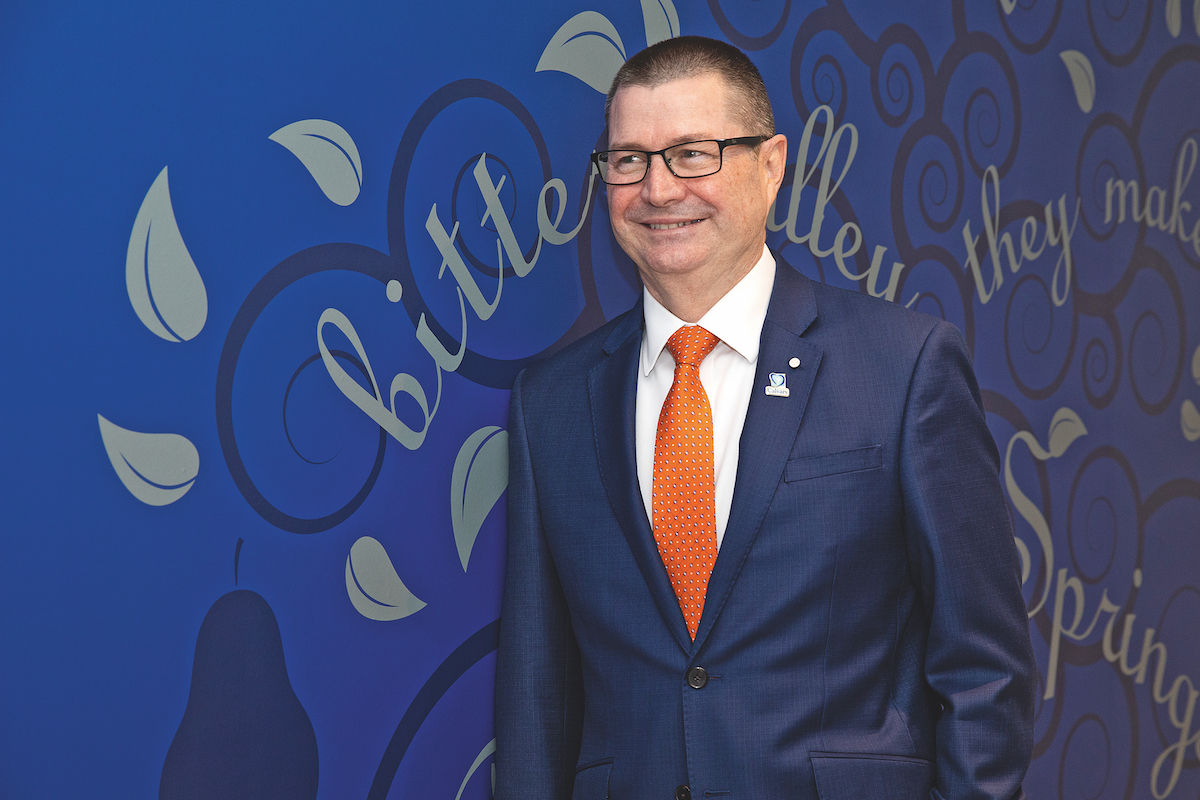
You mentioned that Calvary was of interest to you because of a focus on its mission, its vision and its values. How do you work to represent the values of Calvary within your own role?
I have a strong view that my words and my actions need to match. If I say one thing and do another, people will pick it up. One thing about leadership – everyone is watching you. It’s not only the person at the top that staff watch; it’s multiple leadership levels throughout the organisation. Your people will watch for where you vary from what you actually say.
The other thing that goes with that is to watch and listen to what’s going on around you. Take some personal responsibility and make sure you’re bringing people in. Again, get back to authenticity around words and actions. Making sure that you’re not bigger than the system. We’re not owners of what we do, we’re stewards. I’ve got very strong views on how we do that sort of thing.
What are the sort of challenges you might face on a day-to-day basis?
It’s nothing specific, really. I mean, I love what I do, so everything is more of an opportunity, about how I can change things. There are always going to be issues from time to time with a particular service we’re managing. That’s the nature of health care. We know we don’t always get it right, so we’ve got to be constantly looking at that.
But some of the greatest opportunities we’ve had have come out of real problems that we’re trying to solve. We had some particularly difficult issues in one of our sites. What’s come out of that is a growth of the people and the organisation to a level that is really quite positive. You take the challenges, the curve balls, and you work out the best way through. When you come through those things, you’re stronger for it.
What would you say makes a prospective employee right for Calvary, whether they’re executive, administrative or medical staff?
One of the things that pervades the organisation is what we call ‘being for others’. It’s part of our mission. We are ‘for’ others. We care for the sick, the vulnerable and the dying.
“We are ‘for’ others. We care for the sick, the vulnerable and the dying.”
The underlying philosophy is about being present and attentive, listening to each other and recognising others. Don’t pretend it is all about you. Involve each other in conversations. Be open about yourself. Show transparency, but then also follow that up by being accountable.
From a cultural perspective, we expect behaviour to reflect these ideals. We’ve done a lot of work on more than just our values – hospitality, healing, stewardship and respect. It’s no good having values if we don’t match that with behaviour. We’ve worked internally on that to drive leadership and culture.
One of our insurers I met with the other day said to me, “You can’t always put your finger on it, but there is a feeling when you go into one of Calvary’s hospitals that it’s really good.” Sometimes you can’t quite define these things.
To quote from that famous movie, The Castle, “It’s the vibe”. It’s quite interesting sometimes how you pick up that vibe when you go into one of our facilities. There is a real caring hand and people are present for each other. That’s ‘being for others’.
Obviously, you look for that sort of attitude from the start, but what strategies do you employ to maintain that culture going forward?
We do a lot of work on it as a senior executive group, across the organisation. The senior executives are a group of about 100 people across the organisation who are in full-time leadership roles, where we’ve got 15 hospitals, 17 retirement and aged care facilities and 22 community care centres, among other things.
We get the group together twice a year to talk quite actively about leadership culture and to develop our strategic intent to focus on our priorities and set the agenda for how we behave. What do we want to actually do as Calvary and how are we going to ‘be for others’?
It gets back to what I said a little bit earlier about words and actions. If I start to do it, others will start to do it, followed by more. It is a cascading issue, but as soon as they pick up on a gap between what I say and what I do, they won’t develop trust. That’s the kind of thing you’ve got to eliminate in an organisation.
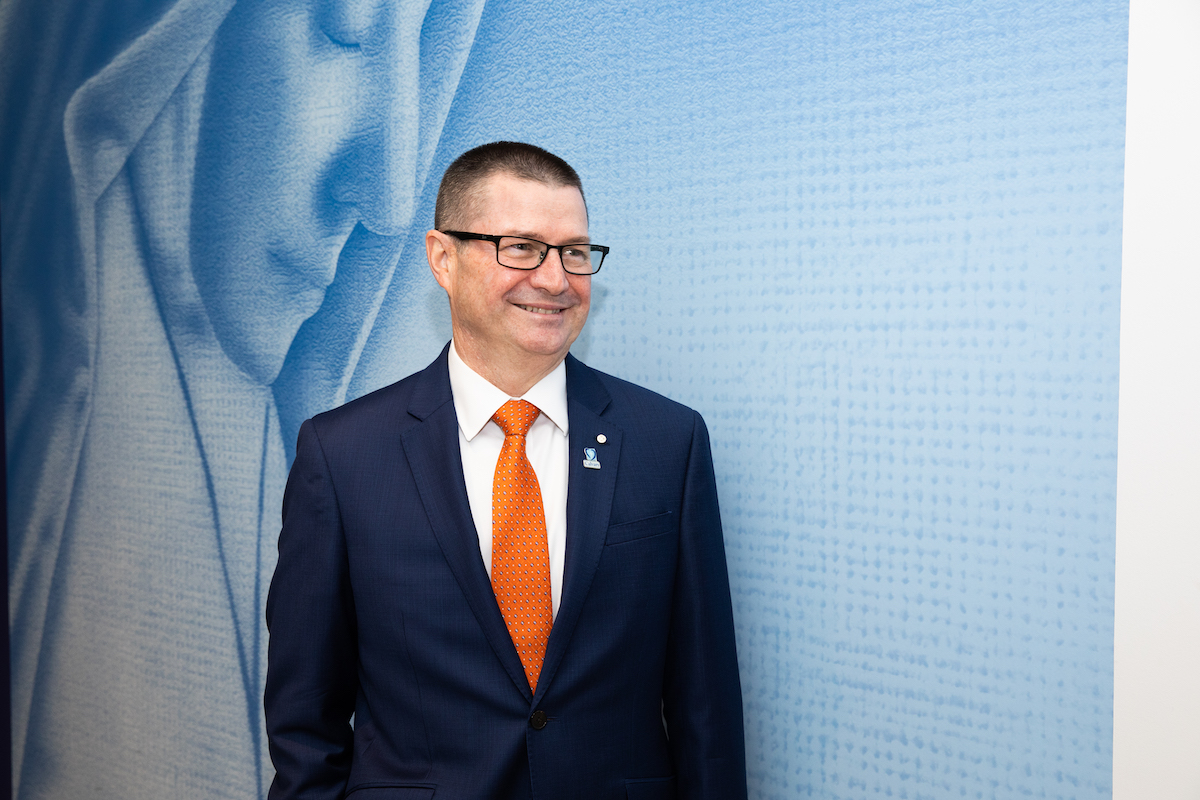
Could you talk a little bit about the organisation’s plans for educating and upskilling staff?
We’ve just started a leadership development program for 30 of our mid- to high-level managers. This is the first group and the program goes for about six months. We’re investing quite a bit in leadership development and everything that goes with it.
We also participate in the Ministry Leadership Program, which is part of Catholic Health Australia. Then there’s just the day-to-day things that are happening all the time, helping people understand what development opportunities there are for them to improve in the delivery of their day-to-day business as well.
But I’m focused at the moment on leadership. As I’ve said, we have those two programs in place now. We’re already seeing people excited about the opportunities it brings. However, it’s also about creating networks, and the more networks there are, the easier it is for you to get messages across and encourage behaviours to shift.
“It’s also about creating networks, and the more networks there are, the easier it is for you to get messages across.”
What do you look for in a prospective supplier or partner? What kind of organisation? What values should it have?
Clearly, we’re going to be dealing with a whole group of businesses who have different missions, values, motives, and so on. What we want out of the relationship is a true partnership.
We need to be able to have a trusting partnership, where we can have conversations even when things are difficult, because B2B exchanges are not always easy. There’s always going to be some tension and we have to have good relationships, irrespective of the difficult conversations we’re always going to have around funding.
What do you think is the key to maintaining those productive relationships?
Tell it like it is. Don’t gild the lily. Don’t try and create an environment where it’s win–loss or loss–win. We want the win–win. How do we truly partner with somebody to get what’s best for both sides? It’s not good for us to do something to a supplier that puts them at risk. We need to be able to understand that and understand what our bottom lines are, but at the same time, we need to understand what their bottom lines are.
Calvary has a partnership with Australian Catholic University. Could you talk a little about that?
Calvary is a Catholic health care provider and Australian Catholic University (ACU), as a supplier of education services for health professionals, provides the Catholic mission and values that form the crux of the relationship.
They have been integral to what we do with our workforce for a long time. We work quite closely with them on that and also participate in broader conversations about what’s good for the sector.
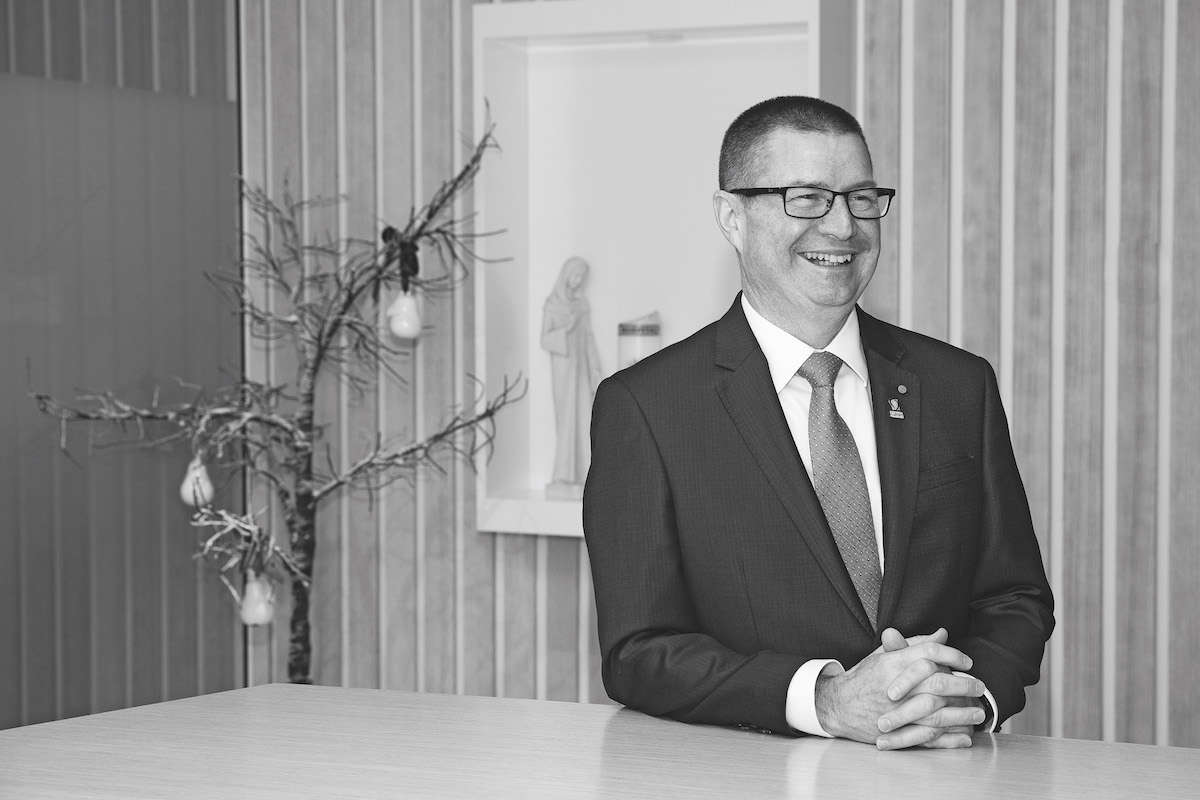
So, it’s a way of ensuring that there’s a healthy workforce within the Australian health system?
Yes, it has to be. ACU is great, but we deal with all universities. It’s about creating an environment where we get the best people for what we want to do. ACU is very good in this particular space.
Most universities these days are pretty good at this sort of thing. But we want staff who feel part of the team, who can live up to the mission and values – that ‘being for others’ mission.
I have to say we’re pretty blessed to have some exceptional people across our organisation. There are about 12,000 staff and volunteers, so it’s significant. If you get that wrong, you can have all sorts of strife.
“We’re pretty blessed to have some exceptional people across our organisation.”
Calvary has a long legacy, a heritage going back to 1885. How does that heritage factor in to the organisation today?
It goes back to that ‘mission’ as well. The Sisters of the Little Company of Mary (LCM) were formed in the UK in 1877 and they came to Australia in 1885. Six Sisters, on the SS Liguria, turned up in Sydney with nothing, so they could look after the poor, the vulnerable and the dying. And that’s what they did.
Over the next 134 years, the Sisters built an organisation that pretty much covers every facet of the Australian health care system. The selflessness, the determination, the grit to get out there and make tough decisions during that time has left us in a strong organisational position.
We still have close relationships with the Sisters, even though they’re not now in the same leadership roles. But they are pivotal to our thinking. We do things like a pilgrimage to the birthplace of LCM, in Nottingham in the UK.
You can really be inspired by listening to the stories of some of the Sisters from the 1800s through to today – the things they have done and the sacrifices they made for the betterment of patients, residents, clients and the broader community.
The absolute tenacity – it’s sometimes hard to describe. They have a character that is the embodiment of ‘being for others’. It’s all about others; it’s not about them.
Could you talk a little bit more about this pilgrimage?
We do that every couple of years with a group of staff. I went earlier this year to Nottingham and to a few places in London. The Little Company of Mary has a heritage centre in Nottingham that showcases artefacts that go back to the start of the order. It’s just one of those things where you’re able to go back and look through some of the history and developments.
Of course, the 1800s were tough times for the broader society, but they were really tough times for the Sisters, as they tried to develop this way of looking after others who are vulnerable and less fortunate than us.
What do you feel that you personally got out of that pilgrimage?
I suppose a deeper understanding of the mission, of the history and the tradition that we still see today. It helps me get better alignment for the organisation and to keep delivering on that for others.
What would you say has been your greatest career achievement?
Being a Secretary of a Department at the federal level was a pretty daunting experience sometimes. It’s phenomenal to get to a position like that, but the only reason you get there is because you’ve got a good team around you.
If you don’t have a good team, you just don’t have the opportunities to get there. And then to jump out of that world, to lead a national group that does the things that we do was pretty special.
So, there are many different points that I’d consider great achievements. Even simple things like making a difference in someone’s career; when they needed a hand up, you gave them a hand and they’ve gone on in leaps and bounds. Examples like that.
People I’ve worked with over the years and some you know you can see a spark in, but they just need an opportunity. So you give them one and that spark ends up running away – it’s great to watch. That’s what I really enjoy. It’s just how you build people, really develop them to be their best selves.
Proudly supported by:
